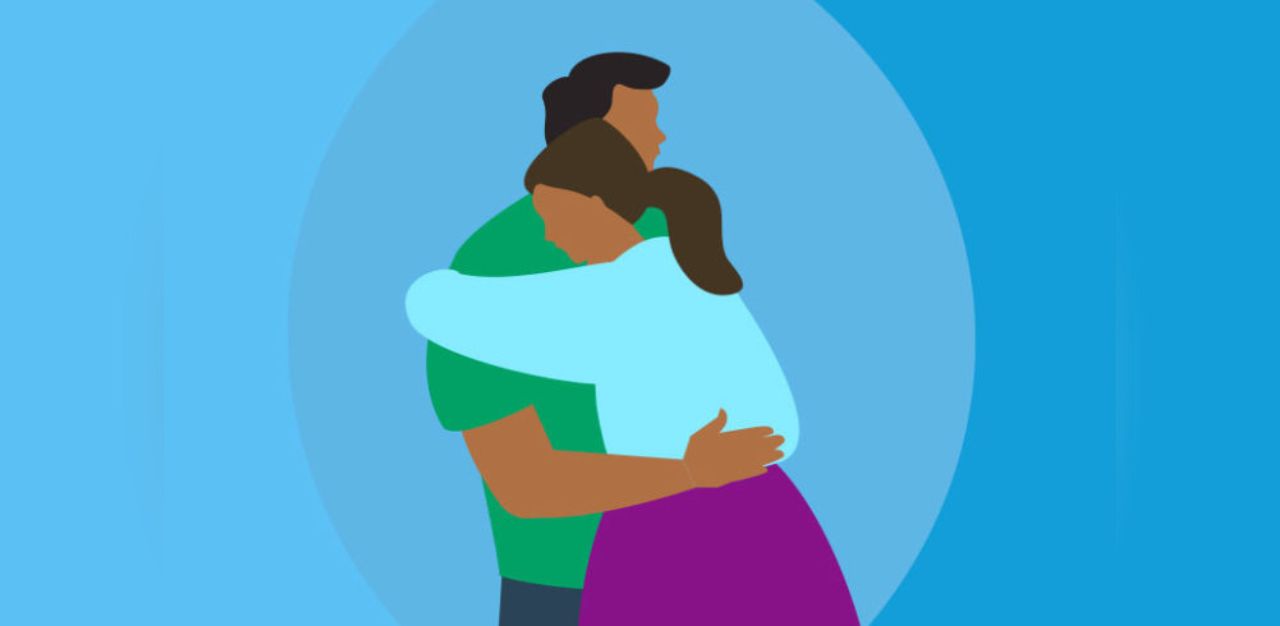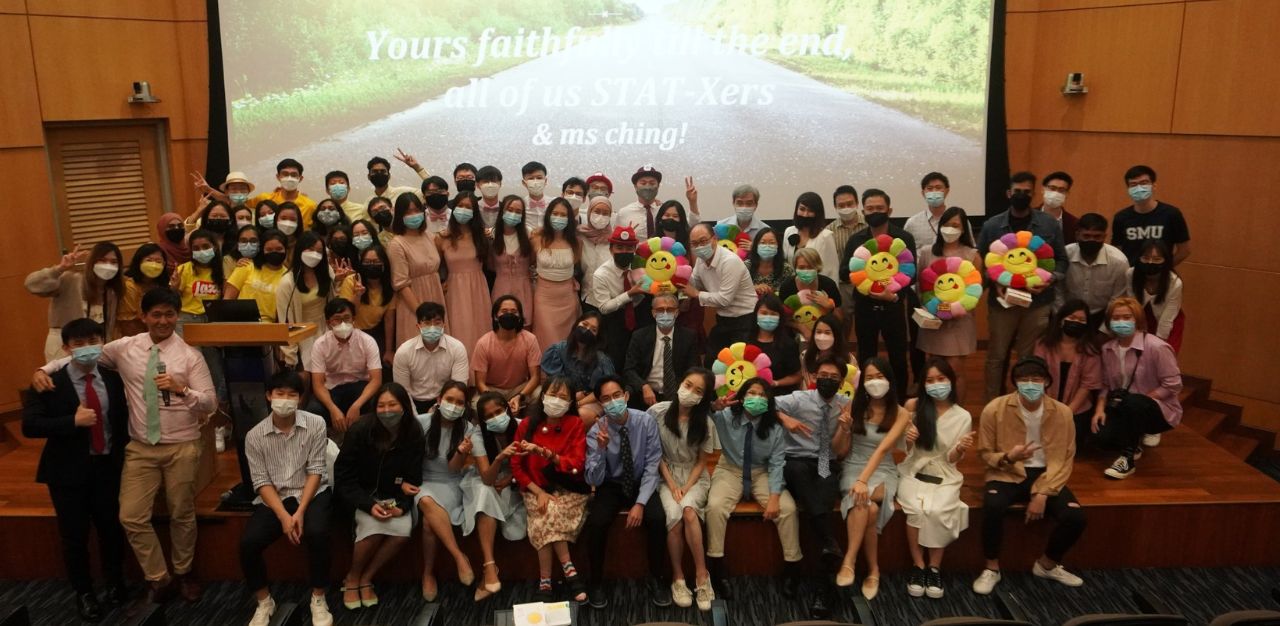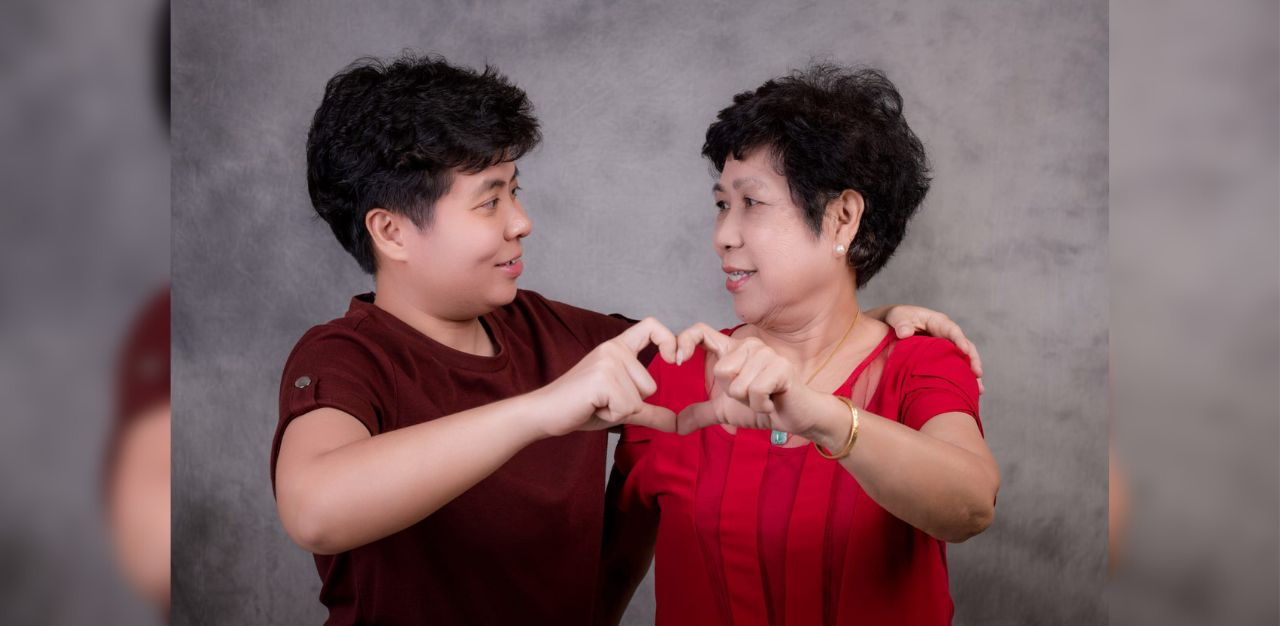(CONTENT WARNING: This article contains information on suicide)
A sinking heart. A blank mind.
This was how Po felt when news of her father’s suicide reached her.
“I was just trying to digest it. And, of course, you hope that the police made a mistake, that it is not your loved one. It definitely came as the biggest shock of my life,” she says.
In 2017, Po, who prefers to be known by her first name, lost her father to suicide.
Five years on, Po has become a volunteer facilitator with the Samaritans of Singapore (SOS) and founded H.E.A.R.T Life Community, an emotional wellness community with an emphasis on reaching out to teens and youth.
Coping and dealing with grief
SOS counsellor Naomi Toh says suicide grief is different from other types of grief due to the trauma embedded in the individual’s loss of his or her loved one through suicide.
“Grief does not have a timeline. It is chaotic and complex at times, depending on the nature of the relationship with the loved one and circumstances surrounding the death. Grief responses can be rather intense, and everyone’s grief is unique. It is important not to compare with others and to give oneself and others the permission to grieve. Given the complexity of grief, one should reach out for help if grief symptoms are prolonged and affect other areas of daily living like sleep, appetite, and interest in life,” she says.
Although there was no confirmed reason for her father’s suicide, Po says that her father was experiencing pain in his neck after suffering a whiplash from a work accident. Despite undergoing physiotherapy, the injury left Po’s father unable to work and suffering from chronic pain that would only ease when lying prone. There was the option of surgery but it came with its own set of risks and complications.
Po says that she could only imagine the emotions he went through during that period, and the transition from a provider to being dependent on others. Being able to empathise with how her father was feeling during the period helped Po herself come to terms with the situation.
“If you ask me, I believe that this was what was going through his mind. He would decide on his own terms rather than going through the operation and not having control over the outcome,” she says.

Po notes that prior to the suicide, her father had always been very optimistic.
“(That day) he was just being his usual self, always smiling. We could not detect any anomalies and he didn’t even complain. I think we need to bring it across as well. Depression, a lot of times, people will hide it. I would say even your closest family members like my mum, who is the closest to him, could not detect the signs,” she adds.
After the suicide, trained staff SOS called to offer emotional support.
“I was very touched and grateful that the staff came to meet me and my mum at the mortuary the next morning. Even though I was grieving, I was still thinking that they were very noble to meet people at the mortuary. I can only imagine the difficulty of their position, especially when it might be quite awkward. I felt that once I was ready, I would want to give back and help others,” Po says.
Ms Toh says that individuals who experience suicide grief often feel isolated due to the stigma surrounding the act and may find it hard to express their grief.
“If you are a friend or family member, be supportive and have a compassionate presence to offer empathy at appropriate times. It is important to acknowledge and validate how they feel and sometimes, grieving together helps as they might be overwhelmed with new and conflicting emotions such as guilt, fear, blame, anger or shame. Provide a listening ear and avoid offering too much advice if unwelcomed. Be patient and accept their expressions of grief,” she says.
Po attended private one-on-one counselling sessions with a SOS counsellor. After passing a series of assessments, Po later joined SOS as a volunteer facilitator in 2018. In August 2022, she founded H.E.A.R.T Life Community, an emotional wellness space with an emphasis on reaching out to teens and youth.
“I think we have to pay a lot of attention to emotional check-ins for teens and youths. It’s really important, because kids have difficulty vocalising their emotions,” she says.
Po adds that her vision for H.E.A.R.T. Life Community is an all-inclusive shared space to normalise conversations on mental, emotional wellness, death and suicide.

Suicide prevention for youth
In 2021, there were 378 reported suicides in Singapore, a decrease of 16.3 per cent from 2020.
Suicide, however, remains the cause for the highest number of deaths among youths aged 10 to 29 from 2019 to 2021, as reported by the SOS in a July press release. Within this age group, SOS observed an increase from 22.3 per cent in 2020 to 29.6 per cent in 2021.
For youths 10 to 19, suicide has risen by 23.3 per cent from 30 deaths in 2020 to 37 in 2021.
Chief Executive of SOS Gasper Tan said in the same press release that while the data showed an overall decrease in reported suicides and is “deeply encouraging”, “we must, however, not be complacent in our efforts to support individuals in distress, as we continue to see more individuals reaching out for support”.
“Comparing 2020 to 2021, our crisis hotline has seen a 127 per cent increase in calls from youths aged 10 to 19, expressing a strong cry for help that cannot be ignored. This increased demand can also be seen in our text-messaging service which reflects the readiness of our youths in help-seeking,” he said.
A father, who does not wish to be identified, lost his young son to suicide in 2020 and says that an extraordinary effort is needed to deliberately open conversations with our children.
“It’s very difficult to balance between giving them space, not to pressure them, and at the same time keep connecting what is in their mind, but appear not as nagging. In our son’s case, we did not know his tipping point and hence we could not help him,” he says.
Speaking to TheHomeGround Asia, Mr Tan adds that to address the suicide rates among youths, the SOS will use measures like first responder training programmes for caregivers and community, youth-targeted campaigns to raise awareness and break the stigma to encourage help-seeking, programmes about communicating safely about suicide online, and working with different stakeholders for a multi-pronged approach.
Community role in suicide prevention

In the SOS annual report for 21/22, there was a large increase in the demand of SOS services such as their hotlines and counselling. Mr Tan attributes the increases to several factors.
“Between May and June in 2020, SOS embarked on a study on help-seeking behaviours of youths and found that there was a lack of suitable and trusted avenues, and that youths preferred text-messaging to voice calls. To bridge this gap, SOS launched our text-messaging platform (CareText) in Oct 2020 and currently serves an average of 2,500 chats a month. On 2 Jan 2022, CareText expanded to be our second 24-hour service. To ensure the relevance of our services and to reduce barriers to seek help during the Covid-19 pandemic, SOS also undertook a job redesign exercise and worked closely with various agencies to develop tele-counselling protocols,” he says.
As a result, despite face-to-face sessions not being possible during Covid-19, SOS counsellors were able to serve 254 cases with high suicidality risks over the last year and an increase of 573 per cent in counselling sessions to 923 sessions compared to 2019.
“Over the Covid-19 period, SOS also observes that the general mental health of service users have declined, leading to a higher demand for services. Other national efforts to de-stigmatise mental health issues and normalise help-seeking may have contributed to the increased use of SOS services. While the demand in help-seeking has increased, SOS has also ramped up efforts in recruiting and training volunteers to meet this increase in demand,” he adds.
Beyond their services, SOS believes that every individual in the community can play a role in suicide prevention.
To mark World Suicide Prevention Day on 10 Sep, Deliveroo has worked with SOS to conduct a first-responder training workshop for close to 30 riders to equip them with vital skills and knowledge to better support the vulnerable in the community.
Held on 22 and 29 August 2022, the Be a Samaritan (BAS) programme, conducted by SOS trainers, covered important aspects of identifying suicide warning signs, ways to support at-risk individuals and available help resources to encourage early help seeking.
“Community connectedness through partnerships such as with Deliveroo is essential to widen our social support networks – from identifying warning signs, to connecting those at risk with services and resources,” says Mr Tan.
In addition to the BAS programme, over 200 Deliveroo riders will support the SOS World Suicide Prevention Month efforts by displaying a campaign sticker on their delivery bags in the month of September. Each sticker contains information about suicide prevention, including the SOS 24/7 helpline, and is designed to spark conversations around suicide and spread awareness about suicide prevention.
“Suicide is preventable, and everyone can play a role in saving lives and creating a mentally resilient community … The first step is learning more about the issue of suicide and equipping ourselves with the knowledge and skills to provide first-line support to family, friends or colleagues, while encouraging those who need professional help to seek it,” said CEO of the National Council of Social Service (NCSS) Tan Li San who opened the programme.
Gone but never forgotten

Five years after her father’s untimely death, Po remains cheerful and has become an ardent volunteer with both the SOS as well as advocating for youths.
When asked about her advice for anyone suffering from mental health issues she says, “I think most importantly, you will definitely find comfort in numbers, hearing a group share their experiences and knowing that you are not alone. We will journey together with you”.
Helplines
Samaritans of Singapore: 1-767 (24 hours)
Institute of Mental Health: 6389-2222 (24 hours)
Singapore Association for Mental Health: 1800 283-7019 (Mon to Fri, 9am to 6pm)
TOUCHline: 1800 377-2252 (Mon to Fri, 9am to 6pm)
Care Corner (Mandarin hotline): 1800-3535-800 (Daily, 10am to 10pm)
Related: Overcoming Negative Stereotypes Amid Calls for National Suicide Prevention Strategy
Join the conversations on TheHomeGround Asia’s Facebook and Instagram, and get the latest updates via Telegram.












